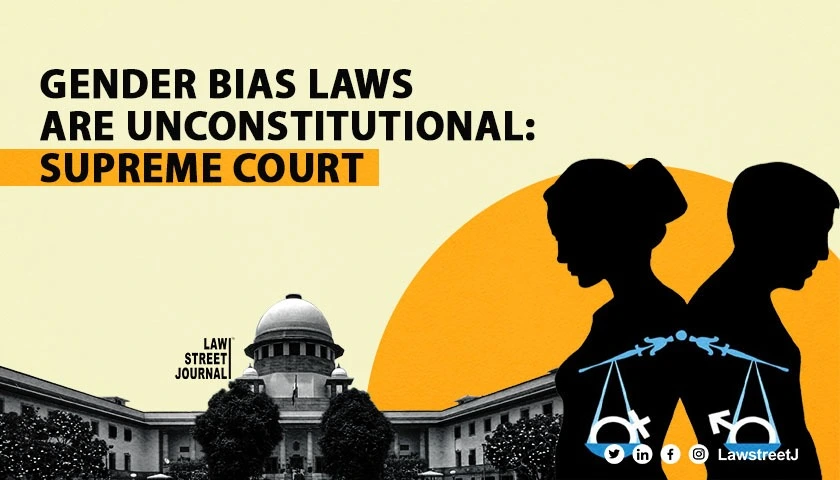NEW DELHI: The Supreme Court has said laws and regulations based on gender bias are constitutionally impermissible and rules making marriage of women employees and their domestic involvement a ground for disentitlement would be unconstitutional.
The apex court held that releasing a permanent commissioned officer in Military Nursing Service for her marriage due to a patriarchal rule is "manifestly arbitrary and coarse case of gender discrimination and inequality".
A bench of Justices Sanjiv Khanna and Dipankar Datta directed the Union government and others to pay Rs 60 lakh compensation to ex Lt Selina John within eight weeks as full and final settlement.
The court declared that her discharge from the service due to her marriage on the basis of a rule was illegal.
"Such rule was ex facie manifestly arbitrary, as terminating employment because the woman has got married is a coarse case of gender discrimination and inequality. Acceptance of such patriarchal rule undermines human dignity, right to non-discrimination and fair treatment," the bench said.
The Centre challenged validity of the decision of Armed Forces Tribunal, Lucknow to reinstate her with all consequential benefits.
The bench, however, said the tribunal's order holding the release of the officer as wrong and illegal, required no interference.
"We are unable to accept any submission that the respondent, who was a permanent commissioned officer in the Military Nursing Service, could have been released/discharged on the ground that she had got married," the bench said.
The contentious Army Instruction No 61 of 1977 titled as "Terms and conditions of service for the grant of permanent commissions in the Military Nursing Service" has been withdrawn by a subsequent letter on August 29, 1995.
The bench said laws and regulations based on gender-based bias are constitutionally impermissible and the rules making marriage of women employees and their domestic involvement a ground for disentitlement would be unconstitutional.
Modifying the AFT's order, the court directed the Union government to pay compensation of Rs 60 lakh to the officer within a period of eight weeks.
In case the payment is not made within a period of eight weeks, they will pay interest at the rate of 12 % per annum from the date of this order till the payment, the bench ordered.

















